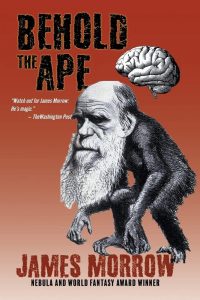Gabino Iglesias Reviews Ink by Jonathan Maberry
 Ink, Jonathan Maberry (St. Martin’s Griffin 978-1250765888, $17.99, 464pp, tp) November 2020. Cover by Jonathan Bennett.
Ink, Jonathan Maberry (St. Martin’s Griffin 978-1250765888, $17.99, 464pp, tp) November 2020. Cover by Jonathan Bennett.
People are the amalgamation of their memories and experiences, and Jonathan Maberry’s Ink explores what happens when we lose our most important memories. A sprawling, dark narrative made up of the interwoven stories of a set of misfits that struggle to get by, Ink is a moody horror novel that deals with grief, anger, guilt, and Otherness in a small town.
Patty Trang, known as Patty Cakes, is a Vietnamese tattoo artist living in the small town of Pine Deep. She runs a tattoo shop she opened after spending some time in New York. She has a tattoo of her dead daughter’s face on the back of her hand and has a sixth sense that makes her connect deeply with some of her clients. Unfortunately, she’s losing her memories of her daughter, who was kidnapped and brutally murdered. Owen Minor is a man who became something else, something darker than human. He can steal people’s tattoos and lives for the thrill of stealing the painful memories attached to them. Monk Addison is a private investigator working with a bail bonds agency. He has a collection of tattooed faces of murder victims. They all collide in Pine Deep. Folks like Patty and Monk must come together to find the evil and stop it from feeding on the memories of others.
Maberry is a master of atmosphere, and he shows that here. Besides the characters at play, there are a series of elements that become such an intrinsic part of the narrative that they turn into characters and add to the gloomy, eerie ambiance of the novel. Dark birds like crows and grackles that appear at certain times and follow people around, the incessant rain that pummels Pine Deep mercilessly, and the art inked on people’s skin all take lives of their own. The same goes for the flies, which add a layer of creepiness that runs through the entire story, even inside houses, businesses, and hospitals:
There were five of them. Big, bloated ones. Dark as bruises. Ugly. The homeless vet lay on his side, with the ties of his gown askew, the flaps open to reveal the ornate landscape of interlocking tattoos on his back. The flies were crawling over them. Mike edged forward and saw the little bastards licking at the man’s skin.
While the character development and atmosphere are superb, there are two elements that push Ink into must-read territory: the way Maberry tackles Otherness and how he weaves in and out of incredibly dark places.
In terms of Otherness, characters from the fringes, immigrants, loners, LGBTQ+ characters, and even languages like Spanish and Vietnamese are sprinkled throughout the book. Everyone is different here, and some of their differences matter a lot when it comes to the way other people react to and perceive them.
When it comes to the dark stuff, Maberry allows readers to get comfortable and then drops horrific bombs on them. For example, there is a conversation in which Monk has to tell a local cop how Patty’s daughter died, and it’s so brutal it will surely stick with readers for a long time after they’ve turned the last page.
Lastly, memories are at the core of the story. Maberry explores what they are, how they come about, the role they play in people’s life, and what happens when they’re lost. Owen wonders “what would happen when all of his memories were gone”:
Would he simply go away, too? Would he fade like a mist and simply not be there anymore. There, or anywhere?
Would it hurt?
Would it be like falling asleep?
Would he vanish from other people’s memories?
Or would he exist only in the eternal now, like a monk or a lama?
There is a lot happening in Ink, but the book ultimately soars because Maberry achieves a perfect balance between gripping and difficult to read; it’s the kind of story that’s hard to put down but that also delivers devastating passages and cuts to the marrow of the lives of flawed, lonely characters that feel real because they face some of the same situations most people face. Maberry is a master of dark fiction, and Ink is an impressive, enthralling addition to his already impressive oeuvre.
Gabino Iglesias is a writer, journalist, professor, and book reviewer living in Austin TX. He is the author of Zero Saints and Coyote Songs and the editor of Both Sides. His work has been nominated to the Bram Stoker and Locus Awards and won the Wonderland Book Award for Best Novel in 2019. His short stories have appeared in a plethora of anthologies and his non-fiction has appeared in the New York Times, the Los Angeles Times, and CrimeReads. His work has been published in five languages, optioned for film, and praised by authors as diverse as Roxane Gay, David Joy, Jerry Stahl, and Meg Gardiner. His reviews appear regularly in places like NPR, Publishers Weekly, the San Francisco Chronicle, Criminal Element, Mystery Tribune, Vol. 1 Brooklyn, the Los Angeles Review of Books, and other print and online venues. He’s been a juror for the Shirley Jackson Awards twice and has judged the PANK Big Book Contest, the Splatterpunk Awards, and the Newfound Prose Prize. He teaches creative writing at Southern New Hampshire University’s online MFA program. You can find him on Twitter at @Gabino_Iglesias.
This review and more like it in the April 2021 issue of Locus.
 While you are here, please take a moment to support Locus with a one-time or recurring donation. We rely on reader donations to keep the magazine and site going, and would like to keep the site paywall free, but WE NEED YOUR FINANCIAL SUPPORT to continue quality coverage of the science fiction and fantasy field.
While you are here, please take a moment to support Locus with a one-time or recurring donation. We rely on reader donations to keep the magazine and site going, and would like to keep the site paywall free, but WE NEED YOUR FINANCIAL SUPPORT to continue quality coverage of the science fiction and fantasy field.
©Locus Magazine. Copyrighted material may not be republished without permission of LSFF.






